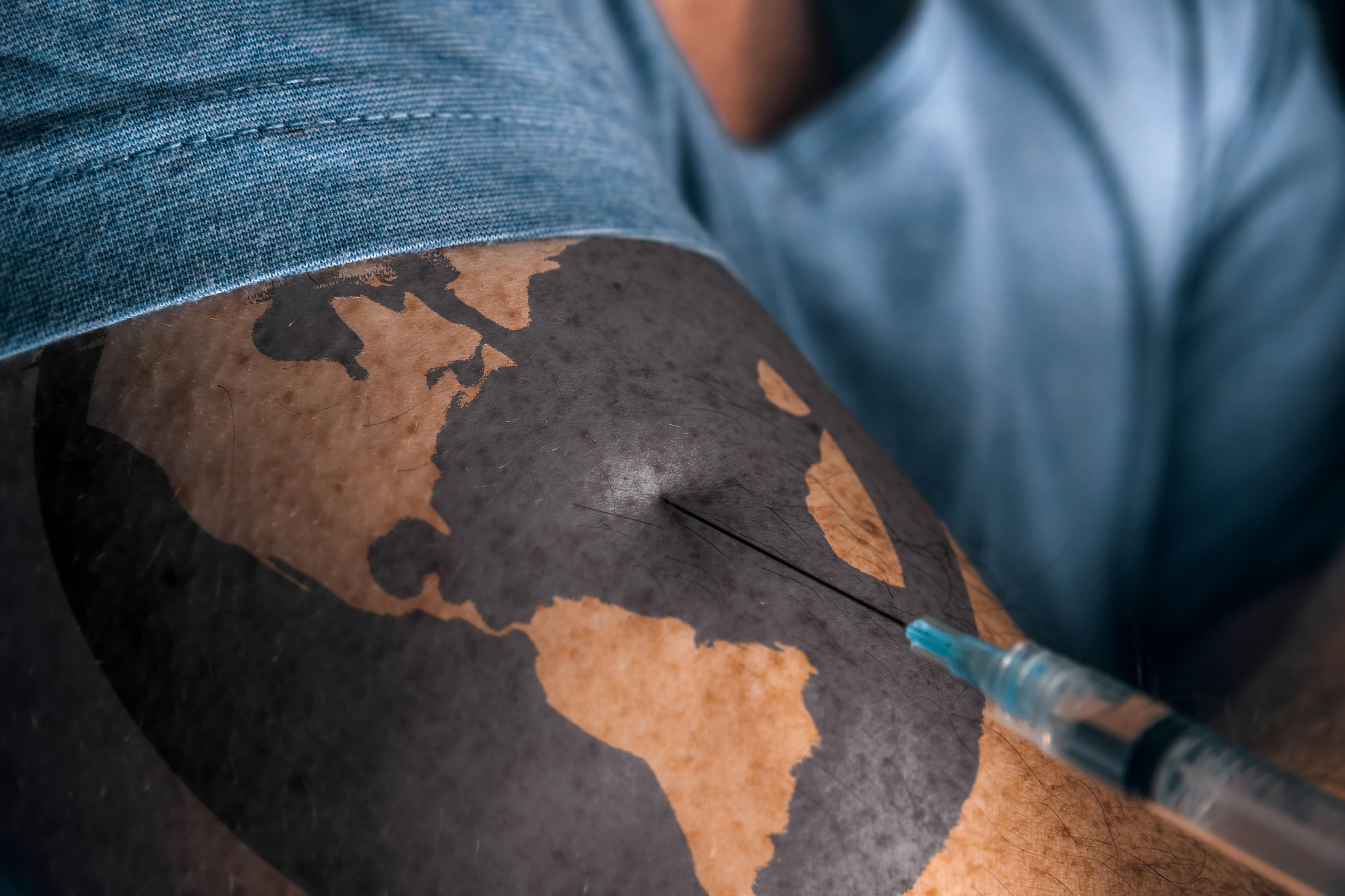COVID-19 vaccine nationalism has overshadowed an ambitious cross-border initiative to fight a virus that knows no borders: the COVAX Facility, which aims to ensure that no country gets left behind in the vaccine race. As some developed nations have already started rolling out vaccines, citizens of other countries — especially billions throughout the developing world — wonder when it'll be their turn to roll up their sleeves. The answer depends largely on the long-term fate of COVAX, which in turn rests on resolving three major issues.
First, COVAX needs time. Established in June and coordinated by the World Health Organization, the Gavi global vaccine alliance and the Coalition for Epidemic Preparedness Innovations, COVAX pools contributions from governments, international organizations, the private sector and other partners to help drug manufacturers achieve scale by promising to buy up all their vaccines and then directs them toward cash-strapped countries that otherwise can't afford to buy enough doses for its people.
COVAX says it's on track to distribute 2 billion doses by the end of next year — enough to inoculate at least 20 percent of the population in 192 countries, including 92 of the world's poorest nations. But the scheme has also come under scrutiny after an internal review showed that it may leave some developing countries with no vaccines at all until 2024.
Part of the problem is that COVAX relies on at least nine cheap vaccine candidates that are still in phase III clinical trials, excluding the more expensive Pfizer and Moderna drugs. However, while it may take COVAX longer to get vaccines, the ones it wants are better suited to the developing world. Gavi has described the drug being developed by Oxford University and AstraZeneca as a potential game-changer, because it's affordable and requires only basic refrigeration, as opposed to Pfizer's vials that need ultra-cold storage.
Second, COVAX needs American and Chinese help. The Trump administration rejected participation in the project, while Beijing initially dragged its feet but finally joined in October — at least partly to single out the US as a major outlier on global cooperation, and to repair China's image following its cover-up of the initial COVID-19 outbreak in Wuhan.
Although President-elect Joe Biden has yet to say how (and how much, which depends on Congress) the US might help, having the US on board would provide a boost of confidence and resources for COVAX. China, on the other hand, is in a tough spot given its own diplomatic campaign to make Chinese-made vaccines available to allies and clients in the developing world, so Beijing must follow up with strong financial commitments to show that its presence is more than a PR stunt.
Third, COVAX needs (more) cash. The internal review report noted that COVAX requires an additional $5 billion on top of the $2.1 billion it has raised so far from the EU, the Bill and Melinda Gates Foundation and other donors to vaccinate 20 percent of people in poor countries by the end of 2021 to account for possible price hikes, supply delays, and rising investment risk.
In the absence of an unlikely windfall from the Americans and Chinese, COVAX could issue up to $1.5 billion in so-called "vaccine bonds" if donors agree to cover the default risk, though that still won't cover the funding gap. With even rich countries scraping the budget barrel, most are prioritizing spending on domestic stimulus programs to stave off pandemic-fueled recessions.
But developed countries have sound economic reasons to invest in vaccines for the developing world. According to a recent study by Eurasia Group, equitable global access to vaccines could yield up to $466 billion in economic benefits in the next five years for ten major economies, including the US. That's almost one hundred times what COVAX needs to do its job, not to mention that the world won't go back to normal until all countries have defeated the coronavirus.
Bottom line: Six months after its launch, COVAX remains the best hope for low-income nations to gain access to COVID-19 vaccines. Yet, its limitations have also exposed how vaccine competition has exacerbated inequality among countries. Either way, the success or failure of this experiment in global cooperation will be a major factor in determining when the world has recovered from this historic public health, social, political, and economic shock.